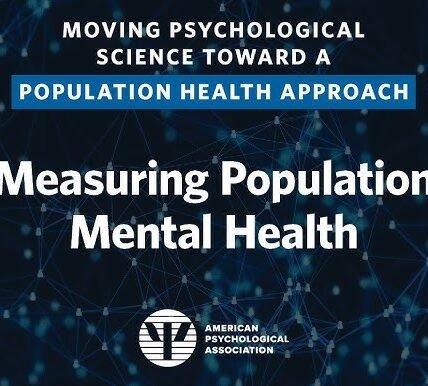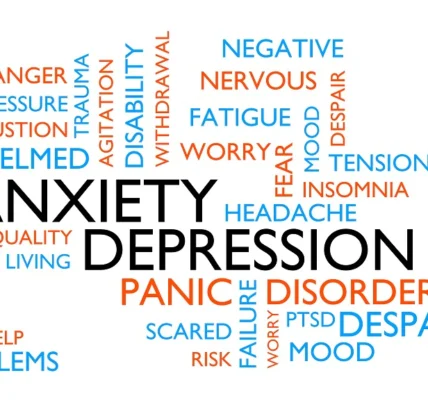Gastric sleeve surgery is often seen as a life-changing procedure for individuals struggling with obesity. Many people turn to this surgery in the hope of transforming their health and achieving weight loss goals. However, for some, the experience can be far from what they anticipated. If you’ve been considering the surgery or are already facing challenges after the procedure, you might relate to the feeling of regret that follows. In this article, we will explore how gastric sleeve surgery ruined my life, the complications involved, and the recovery struggles that many face.
What is Gastric Sleeve Surgery?
Before we dive into the complications and difficulties, let’s briefly review what gastric sleeve surgery is. Also known as sleeve gastrectomy, it involves removing a large portion of the stomach, leaving behind a sleeve-shaped structure. The goal of this surgery is to reduce the amount of food the stomach can hold, which helps patients reduce their calorie intake and lose weight.
While the surgery has proven to be effective for many people, it is not without risks and side effects. Unfortunately, for some, the aftermath of the surgery is filled with unexpected challenges.
Gastric Sleeve Complications: More Than Just Weight Loss
While gastric sleeve surgery can result in impressive weight loss, it comes with various potential complications. Some of these complications may be temporary, while others may persist and significantly impact quality of life. For those who feel that gastric sleeve surgery ruined my life, the complications can feel overwhelming and life-altering.
Common Gastric Sleeve Complications
Here are some of the most common and serious complications that patients may face:
- Nutritional Deficiencies: After the surgery, the body may have trouble absorbing essential nutrients, leading to deficiencies in vitamins and minerals, such as vitamin B12, calcium, and iron. These deficiencies can cause fatigue, hair loss, and bone problems.
- Gastroesophageal Reflux Disease (GERD): Many patients experience heartburn and acid reflux after the surgery. GERD can lead to discomfort and, in some cases, require additional treatments or medications.
- Dumping Syndrome: This occurs when food moves too quickly from the stomach to the small intestine. Symptoms include nausea, sweating, dizziness, and diarrhea. This is often triggered by consuming high-sugar or high-fat foods.
- Stomach Leaks: A serious complication that occurs when the stomach’s incision site fails to heal properly, leading to leaks in the digestive system. This requires immediate medical attention.
- Gallstones: Rapid weight loss can increase the likelihood of developing gallstones, which can cause pain and other digestive issues.
These complications can severely impact your ability to live a healthy and fulfilling life. For those who feel their life has been “ruined,” these physical challenges are a heavy burden.
Post-Surgery Regrets: The Mental and Emotional Toll
When someone undergoes gastric sleeve surgery, they often focus on the physical changes they hope to achieve. However, the emotional and psychological effects of the surgery can also be profound. Many individuals experience post-surgery regrets gastric sleeve, and their expectations don’t match the reality of the aftermath.
Emotional Struggles After Gastric Sleeve Surgery
Here are some of the emotional issues that people often face after the surgery:
- Feelings of Betrayal: Many patients feel betrayed by their own bodies when they don’t achieve the weight loss they hoped for or face complications that prevent them from living a normal life.
- Body Dysmorphia: Even after significant weight loss, some individuals struggle with seeing themselves differently. They may not feel the joy of their new body shape, which can lead to ongoing dissatisfaction.
- Loss of Identity: Food often becomes a source of comfort for people who have struggled with obesity. After surgery, some patients mourn the loss of their old eating habits and the emotional connection to food.
- Depression and Anxiety: The combination of physical discomfort, emotional stress, and feeling isolated in the recovery process can lead to feelings of depression and anxiety.
These emotional challenges can make it difficult to adjust to life after surgery. It’s essential to address the mental health aspect of post-surgery recovery to avoid the feelings of regret that many experience.
The Gastric Sleeve Recovery Nightmare: What to Expect
One of the most significant hurdles for many patients is the gastric sleeve recovery nightmare that follows surgery. Recovery doesn’t always go as planned, and many people face prolonged struggles that impact their day-to-day life.
What You Might Experience During Recovery
After the surgery, patients typically spend a few days in the hospital recovering. However, the road to full recovery can be long and difficult. Here’s what to expect during the recovery phase:
- Pain and Discomfort: Pain around the incision sites is common in the first few days. For some, this pain persists for weeks, making it difficult to move comfortably.
- Swelling and Nausea: Swelling in the stomach area is a common occurrence, which may be accompanied by nausea and vomiting. This can make it hard to keep food down and stay hydrated.
- Difficulty Eating and Drinking: Due to the smaller stomach size, eating large meals is no longer possible. Patients must learn to eat small portions and choose nutrient-dense foods. This can be difficult for those used to eating larger quantities.
- Fatigue and Weakness: The body’s ability to adjust to the smaller stomach takes time. Many individuals feel constant fatigue as they adjust to a new way of eating and absorbing nutrients.
Complications During Recovery
In addition to the general discomfort, many people face specific complications during the recovery period, including:
- Infections at the incision site
- Blood Clots due to reduced mobility
- Delayed Healing of the stomach, leading to prolonged recovery times
- Digestive Issues like constipation or diarrhea that persist for weeks or months after surgery
Tips for Better Recovery
- Follow a Structured Diet Plan: Eating the right foods and staying hydrated is crucial during recovery. Follow the diet plan your doctor provides.
- Take Multivitamins: Due to potential nutrient deficiencies, a daily multivitamin is recommended.
- Rest and Relax: Listen to your body and take time to rest. Avoid heavy lifting and strenuous exercise until you get the all-clear from your doctor.
- Attend Support Groups: Connecting with others who are undergoing the same experience can help you deal with emotional challenges.
A Comparison Table: Gastric Sleeve Surgery vs. Post-Surgery Reality
| Aspect | Gastric Sleeve Surgery Expectations | Post-Surgery Reality |
|---|---|---|
| Weight Loss | Significant weight loss within months | Slow progress or complications may hinder progress |
| Recovery Time | Short recovery time, back to normal quickly | Long, painful recovery with potential complications |
| Eating Habits | Easier control over food intake | Struggles with small portions and digestive discomfort |
| Physical Health | Improved health and energy | Nutritional deficiencies, fatigue, and complications |
| Mental Health | Boosted self-esteem and confidence | Emotional struggles, depression, and body dysmorphia |
FAQs
1. Can Gastric Sleeve Surgery be Reversed?
Unfortunately, gastric sleeve surgery is not easily reversible. In some cases, doctors may perform a different type of surgery, such as a gastric bypass, but it’s not a simple fix.
2. How Long Does It Take to Recover From Gastric Sleeve Surgery?
Recovery times vary, but most people will need about 6-8 weeks to fully recover. However, some individuals experience complications that can prolong this period.
3. What Can I Do if I Regret Having Gastric Sleeve Surgery?
If you are dealing with regrets or emotional struggles after gastric sleeve surgery, it’s important to seek professional help. Consider talking to a therapist who specializes in post-surgery emotional health or joining a support group.
4. How Can I Avoid Complications After Gastric Sleeve Surgery?
To minimize complications, follow your doctor’s instructions carefully, attend regular follow-up appointments, and maintain a balanced diet with necessary supplements.
Conclusion: Moving Forward After Gastric Sleeve Surgery
For some, gastric sleeve surgery ruined my life—this is a harsh reality that many people face after the surgery. From physical complications like nutritional deficiencies to emotional struggles and regrets, the journey after gastric sleeve surgery is not always as straightforward as expected.
However, it’s essential to understand that you’re not alone in this struggle. Many others are going through similar experiences, and support is available. Whether it’s through professional counseling, support groups, or online communities, there are ways to cope with the challenges of post-surgery life.
If you’re struggling with gastric sleeve recovery nightmare or dealing with post-surgery regrets gastric sleeve, it’s important to acknowledge your feelings and seek help when needed. Healing—both physically and emotionally—is possible.





